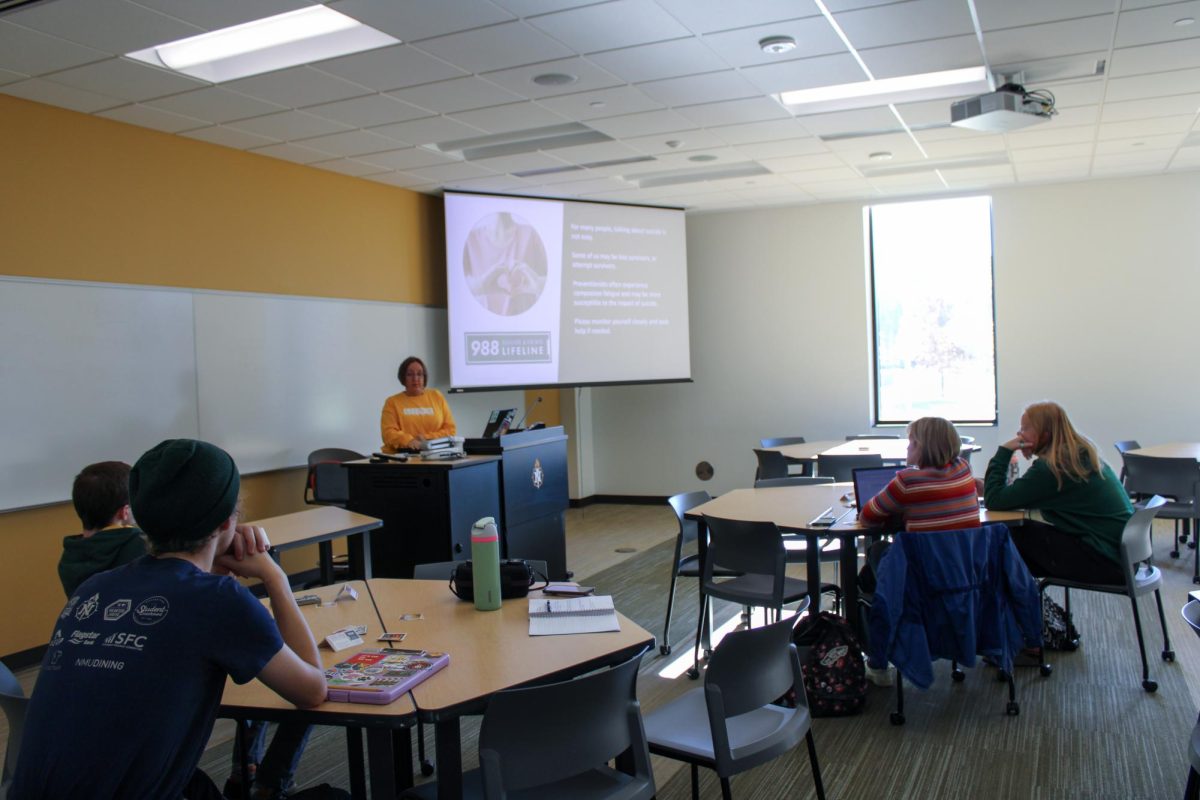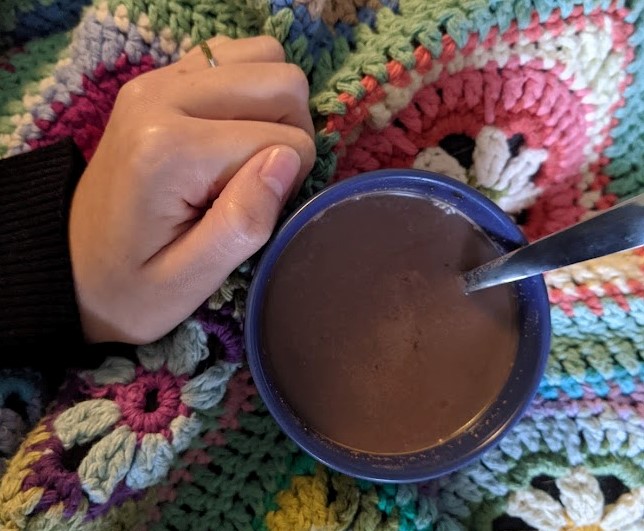Opinion—Self-care during finals
BEAT THE STRESS-Half of the trouble with dealing with stress is knowing when to push yourself to finish your task, and when to give yourself a little break to recharge.
December 2, 2021
At this time of the year, tensions are running high. Stress is peaking for many students, and much of that is a result of final exams. We all share the feeling of urgency and uncertainty about how we will measure up when comparing our performance to previous semesters. Whether you’re working on papers, projects, studying for written or oral exams or preparing your research for review, it’s likely that you’re noticing some physical symptoms of stress.
Symptoms of stress can manifest in the body in varying ways. These can include digestive problems, fatigue, sleep problems, headaches, aches and pains in your muscles and even chest pains, according to the Mayo Clinic. Stress can also cause emotional and behavioral problems like lack of focus, appetite changes and more use of mind-altering substances such as alcohol, nicotine, marijuana or caffeine, according to Yale Medicine.
If you’re experiencing any of these issues as a result of stress, it’s definitely time to take action to improve your health. The Mayo Clinic and Yale Medicine both advocate lifestyle changes to manage stress. These changes, such as creating an exercise routine, developing mindfulness and investing time on leisure and making different dietary choices, can take a while to implement for effective results. However, there are some things you can do to immediately relieve a little bit of your stress and help you get through another day of exam season. Here are some strategies that help me when I’m feeling overwhelmed and stuck.
First of all, avoid the mistake of falling into unproductive procrastination. If you need a break from homework, by all means, give yourself a bit of time to rest your mind. But choose productive activities. Now is not the time to binge TV shows, game excessively, shop online to relieve stress or any other tempting coping mechanism you may be drawn to. It’s better to get your tasks done as soon as possible, and when you’re done you will feel much better.
If you’re having difficulty concentrating on the task at hand, such as a research paper or presentation, set it aside for a moment. Set yourself a five-minute timer and tidy your desk or bedroom. Open a window to change the lighting a bit, or turn on a lamp instead of your overhead light. Then try to return to your task, hopefully with a clearer head.
Or perhaps you could benefit from a fifteen-minute walk outside or a short stretching routine. Getting your body moving can help you to feel less stagnant, and it can give you energy as well as shifting your mindset. I find that when I’m feeling frustrated with myself, or my mind is going fuzzy, getting outside and becoming more in touch with my body can center me and help me regain my concentration.
It’s also helpful to set clear, achievable goals at the beginning of your day. For example, I often write a list of tasks at the beginning of my day, and then I assess how realistic it is to expect myself to accomplish them all. On busier days, I mark my highest-priority tasks and consider everything else on the list bonus points. Keeping your priorities in mind can help with time management, and make the steps to getting through finals week seem more manageable.
Finally, if possible, set a time limit in the evening, after which no more productive work can be done. For me, because I am an early bird in the morning, my productivity ends at around 8 or 9 p.m. each evening. This is a decision I made for the sake of my sanity, and it ensures that I’m able to sleep enough each night.
If your stress becomes a severe problem in your life, you might consider seeking medical or psychological help to cope with your symptoms. If you find yourself abusing mind-altering substances such as recreational drugs or prescription meds, you can seek help and information from the Access Management System agency, which can be reached 24 hours a day at 800-305-6564. If you find yourself having suicidal thoughts and planning, seek medical assistance immediately. You can call helplines such as the HELP helpline at 906-482-4357 or the Pathways helpline at 888-728-4929. You can also go directly to the Marquette hospital if you are afraid of hurting yourself. NMU also offers after hours crisis counseling through Counseling and Consultation services.

























